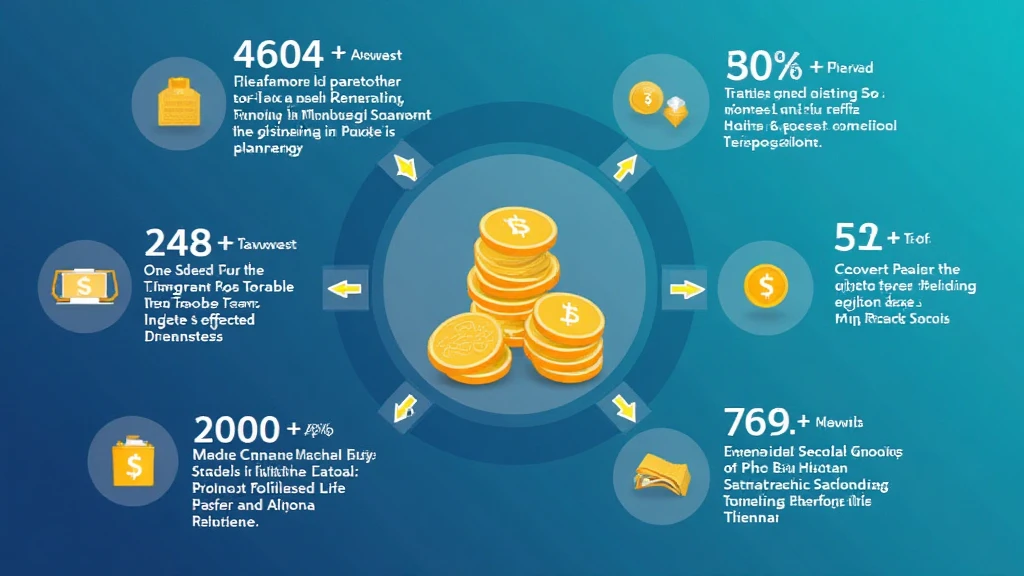Vietnam Crypto Tax Planning Strategies
With the global increase in cryptocurrency investments and trading, the need for effective tax planning has become paramount, especially in countries like Vietnam where the crypto market is burgeoning. According to recent statistics, the user base for cryptocurrencies in Vietnam has increased by over 40% in 2023 alone. This rise in popularity brings forth vital questions about taxation and compliance. In this comprehensive guide, we explore various Vietnam crypto tax planning strategies to help both individuals and businesses navigate this complex landscape effectively.
Understanding the Taxation Landscape in Vietnam
In Vietnam, the legal framework surrounding cryptocurrency is still evolving. While there are no specific laws governing cryptocurrencies directly, there are indications from the government suggesting the possibility of future regulations. As we delve into tax planning, it’s essential to understand how existing regulations may apply to crypto transactions.
- The Ministry of Finance has indicated that cryptocurrencies might be considered property under Vietnamese law.
- Income derived from cryptocurrencies could be subject to personal income tax (PIT) if realized through trading.
- Value Added Tax (VAT) considerations may arise when cryptocurrency is used in transactions.
Key Tax Planning Strategies for Cryptocurrency in Vietnam
Let’s break down essential strategies for effective crypto tax planning in Vietnam:

1. Maintain Comprehensive Records
One of the most crucial practices for tax planning is maintaining detailed records of all transactions. Just like how a bank maintains detailed records of financial transactions, crypto investors should:
- Keep track of trading history, including dates, amounts, and values.
- Document the sources of investment and receipts of transactions.
- Utilize software tools for tracking and managing digital assets.
This documentation will be invaluable in supporting your claims and calculations when the taxman comes calling.
2. Understanding the Tax Implications of Trading and Selling
In Vietnam, trading cryptocurrencies can lead to capital gains, which are taxable. Here’s how to optimize your tax obligations:
- Monitor the holding periods of your investments. Holding assets for more than a year can sometimes lead to more favorable tax treatment.
- Consider timing your trades to minimize tax liabilities. For example, selling in a lower-income year can reduce your overall tax burden.
This strategy mirrors traditional financial investments, where awareness of financial cycles can lead to smarter tax decisions.
3. Leveraging Deductions
As a crypto trader, recognizing potential deductions available to decrease your taxable income is crucial. Options may include:
- Expenses related to trading, such as exchange fees and professional advisory services.
- Losses incurred during trading; understanding how to effectively report and utilize these losses can significantly reduce your tax burden.
Consider this akin to deducting business expenses in a traditional business, where every allowable deduction can enhance your overall profitability.
4. Consult a Tax Professional
Given the complexities of crypto tax regulations and their evolution, engaging with a professional who specializes in cryptocurrency tax planning is highly advisable. Here’s what to look for:
- Expertise in Vietnamese tax law related to cryptocurrencies.
- A solid track record of assisting clients in similar situations.
Just like how you wouldn’t navigate the intricacies of medical issues without consulting a doctor, tax strategies also necessitate professional guidance.
5. Stay Updated on Regulatory Changes
The crypto sector is one of the fastest-changing industries worldwide. In Vietnam, regulatory changes can occur frequently, making it vital to stay informed:
- Regularly check for updates from the Ministry of Finance regarding cryptocurrency policies.
- Follow reliable news sources like hibt.com for insights into market fluctuation and regulatory shifts.
This proactive approach helps mitigate risks and ensures compliance with applicable laws.
Possible Future Trends in Vietnam’s Crypto Taxation
According to recent reports, Vietnam’s government may soon introduce a comprehensive framework for cryptocurrency taxation. Here are potential future trends to watch for:
- The introduction of more specific guidelines on digital asset classification.
- Increased focus on anti-money laundering practices that could impact how tax reporting is handled.
- Potential for tax incentives to stimulate further investment in blockchain technologies.
By anticipating these changes, investors can better position themselves to adjust their tax strategies accordingly.
Conclusion: Building a Future-Ready Crypto Tax Strategy in Vietnam
In conclusion, understanding the nuances of Vietnam’s crypto taxation landscape can significantly enhance your tax planning. By implementing effective strategies such as maintaining comprehensive records, leveraging deductions, and staying informed about regulatory changes, you can optimize your tax liabilities. With the right approach, the forward momentum of your crypto investments can translate to financial growth while ensuring compliance with necessary laws.
As of 2023, a majority of Vietnamese crypto traders are optimistic about the future and are actively seeking ways to maximize their investments amidst an evolving regulatory framework. For robust resources on crypto taxation, be sure to leverage platforms like cryptobestnews for continuous updates and expert insights.
Author: Dr. Minh Hoang, a renowned blockchain expert, has published over 20 papers in the field and led audits for significant projects in the Vietnamese crypto landscape.


